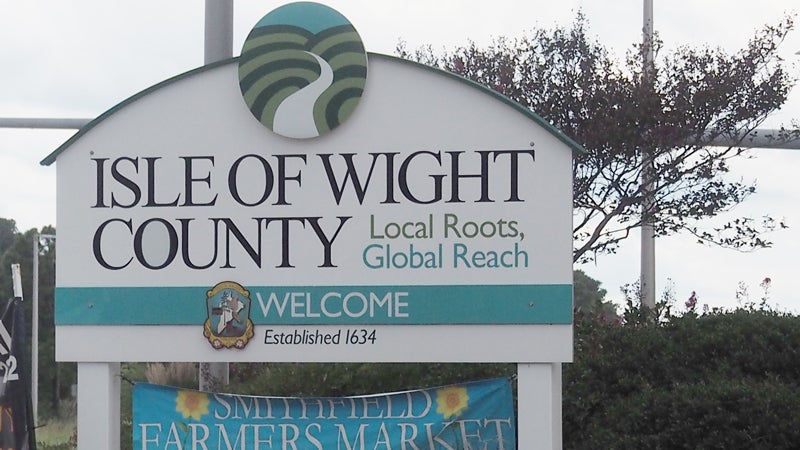Isle of Wight proposes reducing real estate tax rate
Published 1:21 pm Monday, April 10, 2023

- FIle photo
Isle of Wight County is looking to reduce its real estate tax rate ahead of this year’s reassessment of property values.
The county’s draft 2023-24 budget is proposing a 10-cent, or roughly 12%, reduction from the current rate of 85 cents per $100 of assessed value to 75 cents.
The 85-cent rate has gone unchanged for the past nine years. According to County Administrator Randy Keaton, who presented his draft budget to county supervisors on April 6, the 10-cent reduction would be the first decrease Isle of Wight has seen in its real estate tax rate in 16 years.
Even under the reduced rate, the county is expecting a $3.6 million increase in revenue from real estate taxes. As required by state law, Isle of Wight reassesses real estate values every four years, and last did so in 2019.
According to Keaton, residential real estate values in the county are projected to rise roughly 25% from 2019 assessments. Commercial and industrial real estate values are projected to go up 10%, and agricultural land is projected to go up 8%.
Last year, a rate of 1 cent per $100 would have brought in $504,900. This year, a rate of 1 cent per $100 would bring in $618,500, according to Keaton’s draft budget.
Isle of Wight supervisors voted in February to restore the county’s car tax rate to its 2021 level of $4.50 per $100, a rate Keaton proposes to leave in place for the 2023-24 fiscal year. The supervisors had reduced the rate 13% in 2022 to $3.90 amid a surge in used-car prices, which, according to Commissioner of the Revenue Gerald Gwaltney, have for the most part returned to normal. The restored rate is projected to bring in roughly $600,000 above what the county anticipates receiving in car tax revenues for the current year.
The county’s proposed general fund budget totals $94 million, an increase of $5 million, or 1.2%, over the current $88.9 million budget. The single largest component of the budget, at 32% of its total, is the $30.1 million allocated for Isle of Wight County Schools.
The school funding reflects a $2.79 million, or 11%, increase over the roughly $27 million the county contributed to its school system for the current year.
The increase is the exact amount Isle of Wight’s School Board voted at its March 22 meeting to request from the county.
IWCS Superintendent Theo Cramer had initially sought a nearly $5 million increase from the county.
Due to a 5.7% increase in the price of water from the Western Tidewater Water Authority, Keaton is proposing a 59-cent increase in the county’s price per 1,000 gallons of water. For the typical household that uses 5,000 gallons per month, the increase should amount to an additional $2.95, or 2.9%.
The Western Tidewater Water Authority, formed from Isle of Wight and Suffolk, purchases water from Norfolk via the 2009 Norfolk Water Deal. The deal – intended to wean Western Tidewater localities off their dependence on groundwater, which Virginia’s Department of Environmental Quality says has reached unsustainable demand – allots Isle of Wight an annually increasing amount of water, which the county is obligated to pay for whether or not the entirety is used.
The county budget includes a 4% general wage increase for full-time employees, plus a one-time payment of $1,000. Part-time employees will receive a 5% raise.
The budget allots $7.25 million for capital projects, a roughly 90% decrease from last year’s $77.19 million capital budget that reflects the pending completion of the new Hardy Elementary School, Heritage Park all-terrain vehicle trail and other projects. The majority of the $7.25 million will go toward parks and recreation, public utilities and road projects.
The supervisors will hold an April 20 public hearing on the budget and are scheduled to vote May 11 to adopt a budget, tax rates and capital improvements plan.



